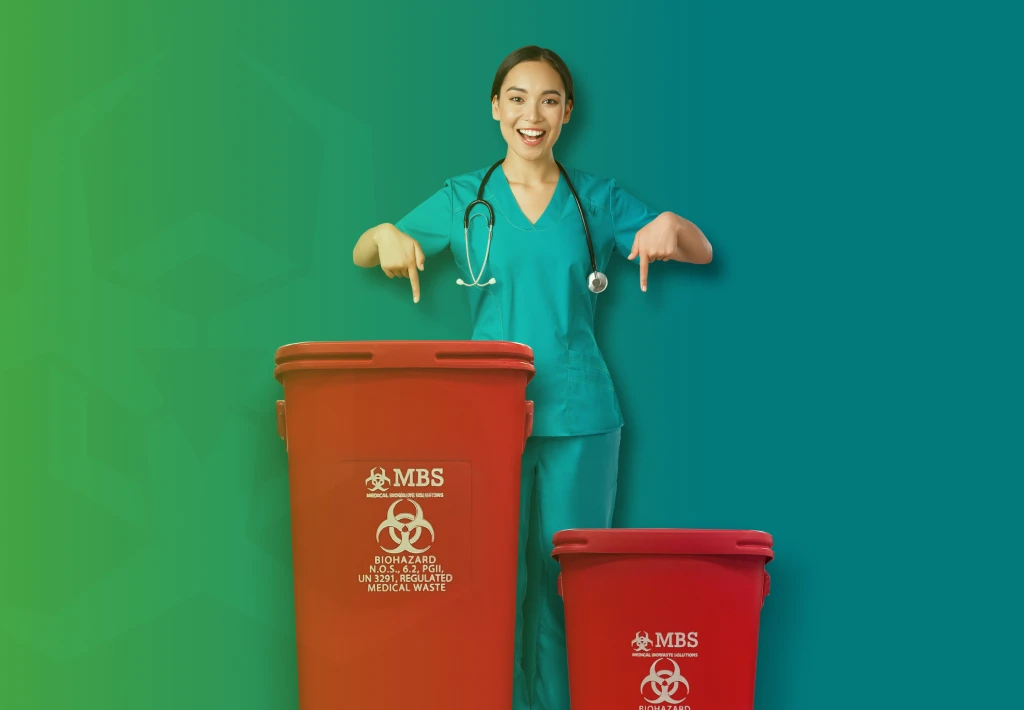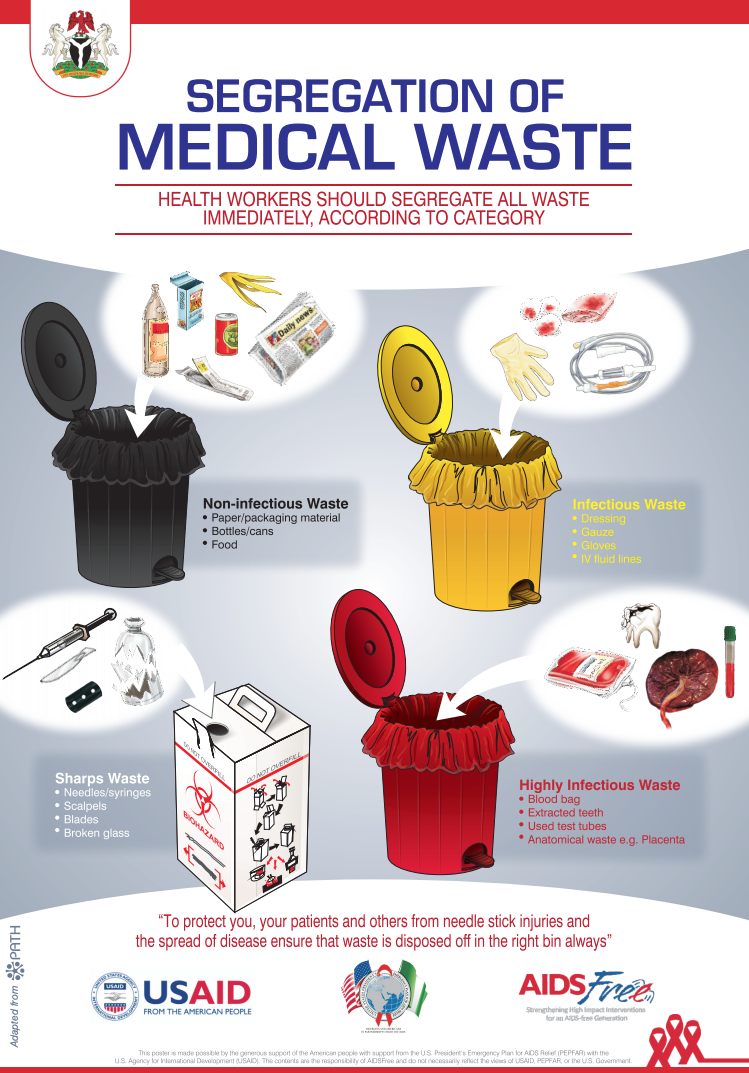Cost-efficient Medical Waste Disposal Services for Facilities and Hospitals
Cost-efficient Medical Waste Disposal Services for Facilities and Hospitals
Blog Article
Navigating Medical Waste Disposal: Vital Providers for Healthcare Facilities
In the elaborate landscape of medical care operations, the monitoring of medical waste is a vital aspect that demands thorough interest. Medical care centers, whether small centers or large medical facilities, are delegated with the responsibility of handling, treating, and throwing away a large selection of medical waste streams. The intricacies entailed in browsing via the governing demands, ensuring appropriate waste segregation, and carrying out safe collection and transportation processes are critical. Understanding the necessary services that sustain medical garbage disposal is not just an issue of conformity yet likewise a fundamental component in guarding public health and environmental well-being. The intricacies of this process are crucial for healthcare centers, and the knowledge supplied in this world plays a crucial role in maintaining the stability of healthcare systems.
Regulatory Conformity Assistance
For health care facilities, guaranteeing regulatory conformity assistance is necessary to maintain appropriate handling and disposal of clinical waste. Sticking to guidelines stated by companies such as the Environmental Security Firm (EPA) and the Occupational Security and Health And Wellness Administration (OSHA) is critical to prevent ecological contamination, secure public health and wellness, and stay clear of possible legal repercussions. Governing compliance support provides healthcare centers with guidance on just how to effectively set apart, shop, transport, and throw away different sorts of medical waste in conformity with neighborhood, state, and federal regulations. This assistance includes aid in developing and applying thorough waste administration strategies, performing regular staff training sessions, and performing audits to ensure ongoing compliance. By partnering with regulative compliance specialists, healthcare facilities can remain up-to-date on progressing guidelines, mitigate dangers associated with incorrect garbage disposal, and eventually add to a more secure and extra lasting setting for all.
Waste Partition Guidance

Medical care centers must give clear standards and training to staff on how to segregate waste effectively. This includes separating general waste from dangerous materials such as sharps, transmittable waste, drugs, and chemical waste. Color-coded bins, labels, and signs are commonly made use of to assist in waste segregation methods. Routine audits and tracking of waste segregation procedures are necessary to recognize any problems and make necessary improvements.
Collection and Transportation Services

Appropriate collection and transportation solutions are necessary elements of the medical waste disposal procedure in healthcare facilities. These services ensure that unsafe products are handled safely and in conformity with laws to safeguard both the atmosphere and public health and wellness. Health care centers count on specialized waste monitoring business to provide efficient collection and transport solutions tailored to their demands.
Clinical waste collection involves setting apart different types of waste at the factor of generation, utilizing color-coded bins or bags to compare basic, unsafe, pharmaceutical, and various other waste streams. Trained personnel need to execute this job to protect against contamination and make sure proper disposal. Once gathered, the waste is carried in devoted vehicles geared up to take care of home unsafe products securely. These cars abide by rigorous safety and security standards and follow marked routes to qualified therapy centers for disposal with approaches such as landfilling, incineration, or sterilization.
Treatment and Disposal Solutions
In the world of medical garbage disposal for medical care facilities, after the vital phase of collection and transport solutions, the emphasis shifts in the direction of executing effective treatment and disposal options. Therapy options typically entail processes such as autoclaving, which uses heavy steam under stress to decontaminate the waste. This method is generally utilized for infectious waste that should be provided non-hazardous prior to disposal. One more common treatment approach is incineration, where waste goes through heats in regulated settings to lower its volume navigate to this site and remove pathogens.
Disposal solutions encompass the last step in the clinical waste monitoring process. Reusing and resource healing are additionally obtaining traction as lasting disposal options for specific types of clinical waste products.
Reliable therapy and disposal remedies are vital in guaranteeing conformity with policies and protecting public health and wellness and the environment. Medical care facilities need to meticulously examine and select appropriate approaches that align with their waste management goals and sustainability initiatives.
Staff Training and Education And Learning

To effectively handle clinical garbage disposal in medical care centers, extensive personnel training and education and learning play an essential function in making certain adherence to governing demands and preserving a secure setting. Appropriate training gears up staff with the knowledge and abilities needed to handle different kinds of clinical waste, segregate them correctly, and package them safely for disposal. By informing workers on the dangers linked with improper handling of clinical waste, facilities can reduce the likelihood of mishaps, contamination, and regulative offenses.

Final Thought
Finally, health care centers count on necessary clinical waste disposal solutions to make certain regulative conformity, appropriate waste segregation, risk-free collection and transportation, effective therapy and disposal, as well as staff training and education and learning. These services play an essential duty in keeping the health and wellness of both healthcare employees and the basic public, highlighting the significance of proper monitoring of medical waste in medical care setups.
For medical care centers, making sure governing compliance assistance is important to preserve correct handling and disposal of clinical waste. Waste segregation involves categorizing various kinds of clinical waste to make sure proper handling, treatment, and disposal. This consists of separating general waste from hazardous materials such as sharps, transmittable waste, drugs, and chemical waste.Clinical waste collection entails setting apart different kinds of waste at the point of generation, making use of color-coded containers or bags to differentiate between basic, harmful, pharmaceutical, and various other waste streams.In the world of clinical waste disposal for healthcare facilities, after the important phase of collection and transportation solutions, the focus changes towards executing reliable therapy and disposal solutions.
Report this page